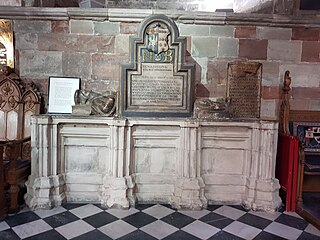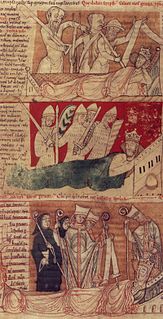
Nuffield College is one of the constituent colleges of the University of Oxford in England. It is a graduate college and specialises in the social sciences, particularly economics, politics and sociology. Nuffield is one of Oxford's newer colleges, having been founded in 1937, as well as one of the smallest, with around 75 postgraduate students and 60 academic fellows. It was also the first Oxford college to accept both men and women, having been coeducational since its foundation.

Worcester College is one of the constituent colleges of the University of Oxford in England. The college was founded in 1714 by the benefaction of Sir Thomas Cookes, 2nd Baronet (1648-1701) of Norgrove, Worcestershire, whose coat of arms was adopted by the College. Its predecessor, Gloucester College, had been an institution of learning on the same site since the late 13th century until the Dissolution of the Monasteries in 1539. Founded as a men's college, Worcester has been coeducational since 1979.
A new university, synonymous with post-1992 university or modern university, is a former polytechnic or central institution in the United Kingdom that was given university status through the Further and Higher Education Act 1992, or an institution that has been granted university status since 1992 without receiving a royal charter. This is used in contrast to "pre-1992" universities.

Nicholas Bullingham was an English Bishop of Worcester.

George Clarke, of All Souls, Oxford, was an English architect, print collector and Tory politician who sat in the English and British House of Commons between 1702 and 1736.
Henry Holbeach was an English clergyman who served as the last Prior and first Dean of Worcester, a suffragan bishop, and diocesan bishop of two Church of England dioceses.
A Commemoration ball is a formal ball held by one of the colleges of the University of Oxford in the 9th week of Trinity Term, the week after the end of the last Full Term of the academic year, which is known as "Commemoration Week". Commemoration balls are held by different colleges each year, following a cycle by which each college holds a ball every three years.
Trinity term is the third and final term of the academic year at the University of Oxford, the University of Dublin, Canterbury Christ Church University, and some independent schools in the United Kingdom. It runs from about mid-April to about the end of June and is named after Trinity Sunday, which falls eight weeks after Easter, in May or June.
Michaelmas term is the first academic term of the academic year in a number of English-speaking universities and schools in the northern hemisphere, especially in the United Kingdom. Michaelmas term derives its name from the Feast of St Michael and All Angels, which falls on 29 September. The term runs from September or October to Christmas.

A martlet in English heraldry is a heraldic charge depicting a stylised bird similar to a swift or a house martin, without feet. It should be distinguished from the merlette of French heraldry, which is a duck-like bird with a swan-neck and chopped-off beak and legs.

Gloucester College, Oxford, was a Benedictine institution of the University of Oxford in Oxford, England, from the late 13th century until the Dissolution of the monasteries in the 16th century. It was never a typical college of the University, in that there was an internal division in the college, by staircase units, into parts where the monasteries sending monks had effective authority. The overall head was a Prior.

John of Worcester was an English monk and chronicler who worked at Worcester Priory. He is usually held to be the author of the Chronicon ex chronicis.
Richard Clifford was a Bishop of London who had previously been Bishop of Worcester, Bishop-elect of Bath and Wells, and Lord Privy Seal.
John Carpenter (1399–1476) was an English Bishop, Provost, and University Chancellor.
William Thomas was a Welsh Anglican bishop. He was ejected from his living at Laugharne during the English Civil War. He was restored in 1660 and became the Bishop of St David's and later the Bishop of Worcester.
Francis John Lys (1863–1947) was a British lecturer and academic administrator. He was Provost of Worcester College, Oxford (1919–46) and Vice-Chancellor of Oxford University from 1932 until 1935.
Francis Willis D.D. was an academic administrator at the University of Oxford and Dean of Worcester.
Whittington Landon was an academic at the University of Oxford and an Anglican clergyman who became Dean of Exeter.

Oxford Universities Quidditch Club (OUQC) is the quidditch club of both the University of Oxford and Oxford Brookes University. It is composed of two teams: a first team, the Radcliffe Chimeras, and a reserve second team, the Quidlings.. Both teams are official QuidditchUK (QUK) teams. QUK is the UK quidditch governing body, and is a constituent part of the International Quidditch Association (IQA).
Professor Kate E. Tunstall is an academic in the field of French literature. She is a Fellow and Interim Provost at Worcester College, Oxford.







